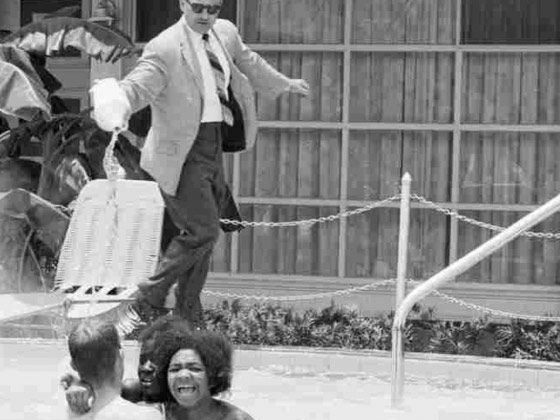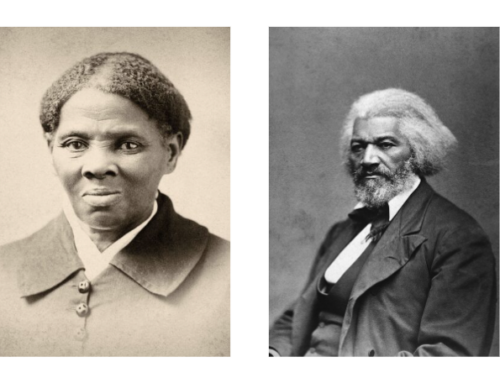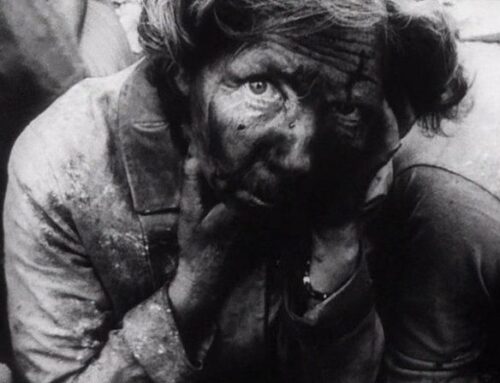$12 General Admission, $9 Member, $7 child age 14 or younger
Doors Open for admissions 30 min. prior to screening Buy tickets at Film Center or online now
Civil Rights icon and long-time PBS and NPR correspondent Charlayne Hunter-Gault will host the screening, introduce Roxbury-based filmmaker Clennon L. King before the film, and afterwards moderate a post-screening discussion on race and history.
In addition to King, joining Hunter-Gault for the conversation and Q&A will be St. Augustine (Fla.) Civil Rights veteran Mimi Jones of Roxbury and Julia Burgess of Vineyard Haven, daughter of the late St. Augustine Civil Rights veteran Esther Burgess.
The late Mrs. Burgess and Jones made headline news in the spring of 1964 during the turbulent St. Augustine, Florida Civil Rights Movement.
Burgess, a Canadian-born Bostonian who was the wife of Episcopal bishop John Burgess, was arrested and jailed after traveling to St. Augustine with the mother of the then-sitting governor of Massachusetts to challenge the Jim Crow segregation laws. Ten weeks later, the 17-year-old Jones, then of Albany, Georgia, was also arrested and jailed after she and six others jumped into a whites-only motel pool in St. Augustine, prompting the owner poured muriatic acid in the water, as news cameras rolled.
Both women were invited to St. Augustine at the invitation of Dr. Martin Luther King, Jr. and his Southern Christian Leadership Conference (SCLC), said the filmmaker “These two courageous women paid a price and made a difference,” said King, whose father, the late Atty. C. B. King, was a lawyer for Dr. Martin Luther King, Jr. (no relation) during the Albany Movement. “It’s important we show both young and old what sacrifice and courage looks like, especially in this current political climate.”
Both women appear and speak in the film, and help underscore, said King, that little-known St. Augustine was a civil rights battleground of monumental importance, as it led directly to the passage of the landmark Civil Rights Act of 1964, outlawing Jim Crow segregation from coast to coast.
An Albany, Georgia native, the filmmaker began working on the project in 2002, after a four-year stint as a TV reporter and anchor at the NBC News affiliate in Jacksonville, Florida, 40 miles from St. Augustine.
“I wanted to track down veterans of the campaign, and capture their stories while they were still here,” he said, noting nearly a third of those interviewed are now deceased, including Burgess whom he interviewed in Martha’s Vineyard in January 2003.
In all, more than 45 voices tell the story of the campaign, including civil rights foot soldiers, field lieutenants, segregationists, clergy, Klansman, journalists and law enforcement. And despite LBJ and MLK headlining the film’s real-life cast, audiences invariably come away asking why a campaign so pivotal appears to have been wiped from the hard drive of History, said the filmmaker.
Thirteen years in the making, the film premiered in February 2015 before the League of Women Voters of Martha’s Vineyard. Since then, King has presented at multiple institutions across the country, including Dartmouth College, the African Burial Ground National Monument in New York City, the University of Texas at Austin and multiple Florida campuses, including Flagler College in St. Augustine where the campaign unfolded.
ABOUT THE FILM: This award-winning documentary establishes unsung St. Augustine, Florida as the bloodiest campaign of the entire Civil Rights Movement, that led directly to the passage of the landmark Civil Rights Act of 1964, outlawing Jim Crow segregation from coast to coast. Viewers enter a time machine to return to the Nation’s Oldest City to hear from desegregationists and segregationists alike who fought in the 15-month campaign.

For more information, please visit passageatstaugustine.com




